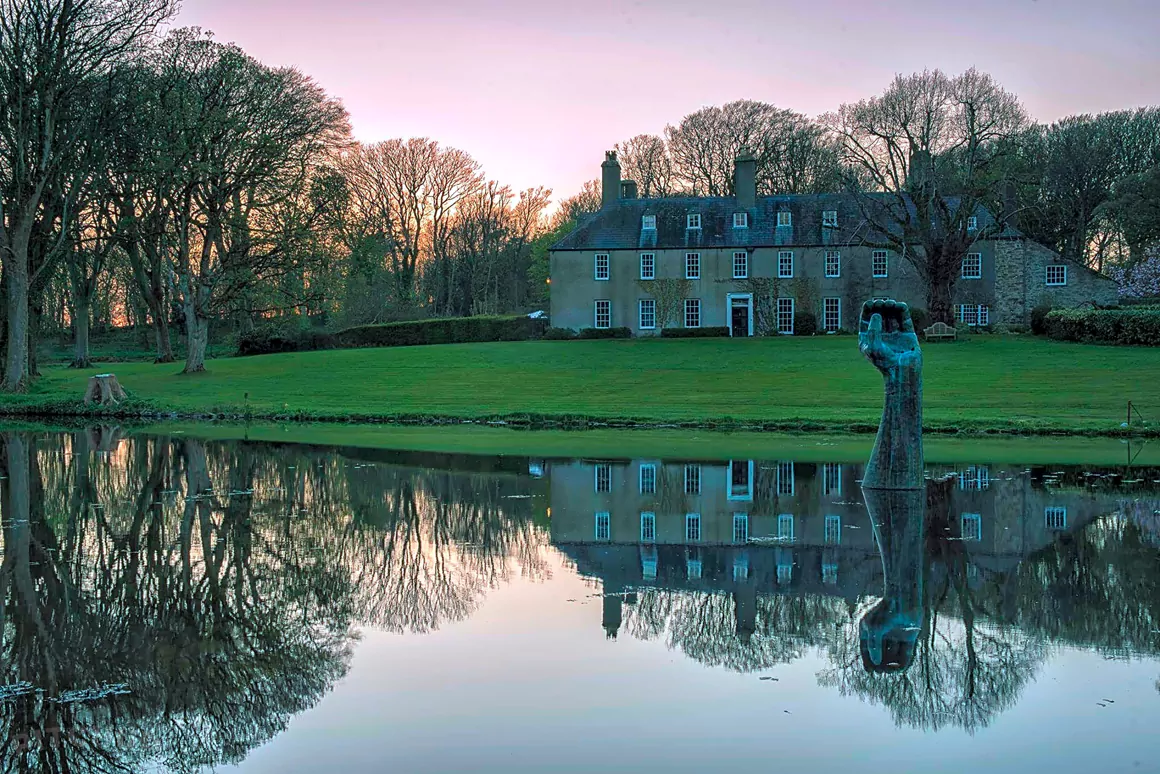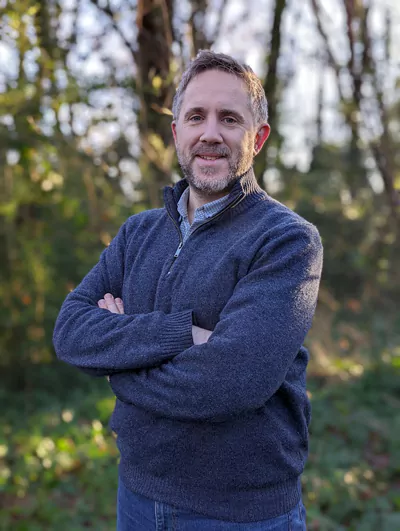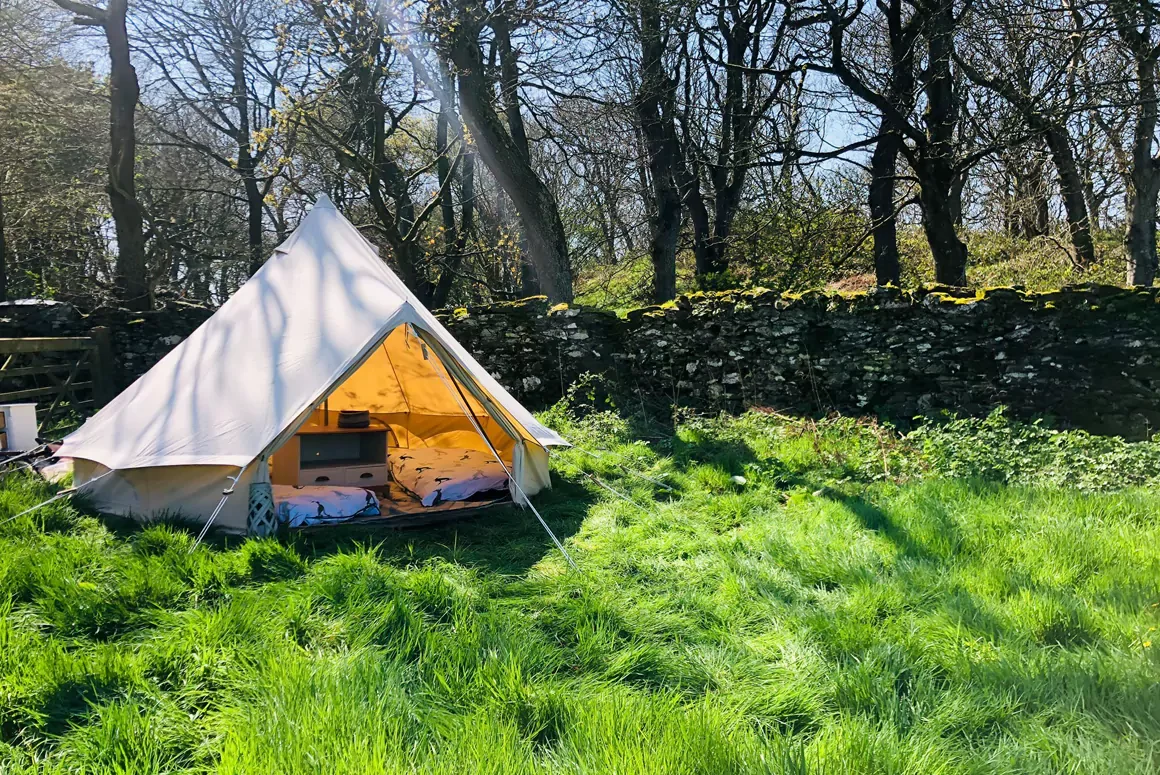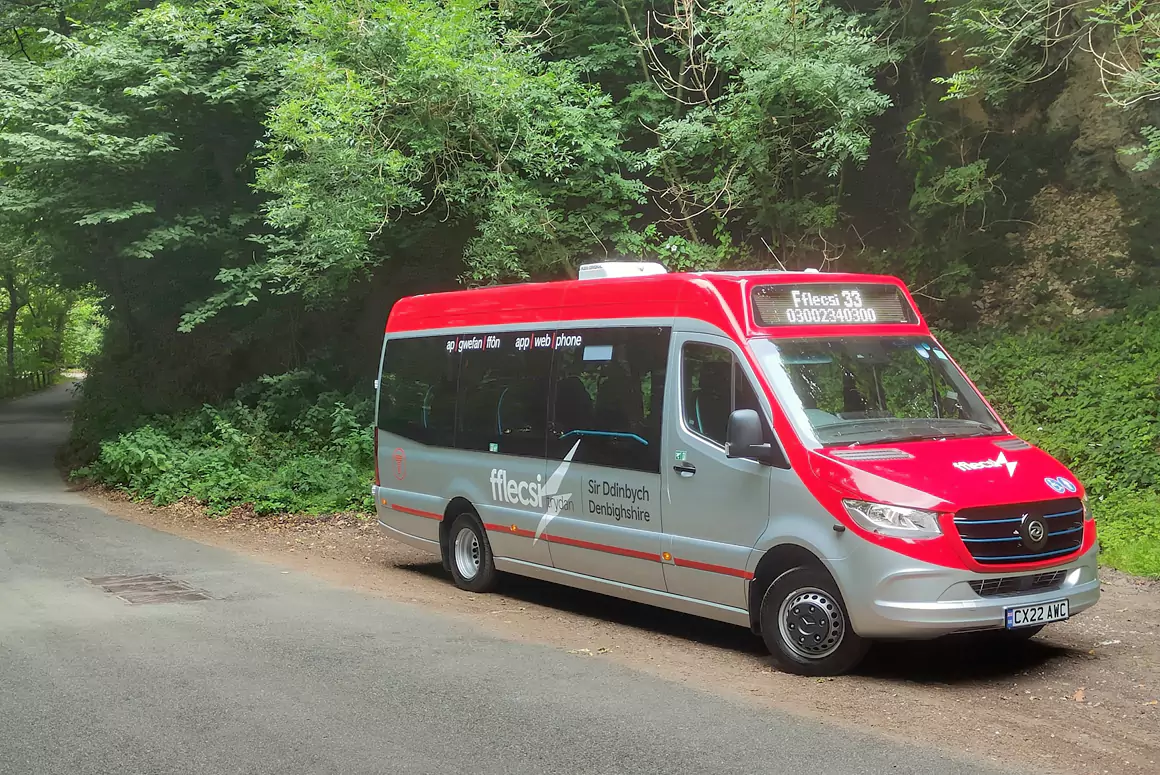![]()
What started with a ‘pop-up’ campsite just two years ago has seen a 17th century estate on Holyhead fully embrace diversification.
For centuries, Carreglwyd Estate, on the north coast of Anglesey has been home to sheep and cattle as part of Wales’s rich farming heritage. Originally established as a reed thatching estate, the old reedbed marsh is now a SSSI with a diverse array of wildlife calling it home.
But a spike in demand for staycations during the COVID pandemic led to Lora Carpenter – daughter of the estate owner – to launch a wild camping experience, Seren-y-Môr, set beside ancient woodland, with spectacular views off the north Anglesey coast.
So popular did the venture prove that the estate owners began working with Nina and Bob Roots to deliver a forest school, and other outdoor pursuit providers, giving a great opportunity for active outdoor holidays for families, couples and friends.
As well as running the forest school, Nina and Bob help run the campsite and Bob helps to advise the estate owners on ecology, woodlands and marshes, as much of the land is given over to woodland and the SSSI marshland.
Nina said:
“During COVID, people weren’t able to go abroad and Anglesey became one of the top destinations in the UK to go on holiday. People were looking for something a bit more wild, and it was really sunny, which was great.
“The estate owners wanted to start a campsite so selected two large fields overlooking the coast which are used as the campsites for the festivals that take place on the estate, Gottwood, and Tonnau, but were otherwise used to graze sheep. The location meant it was an instant hit – people came from all over to stay.
“Because the estate owners are very conservation-minded, it provides a fantastic wild environment for people to enjoy. It really helped people get back to nature at a time when they needed it most.”
The campsite was operated under Permitted Development Rights which at the time enabled landowners to run campsites for 56 days per year without needing to apply for extra planning permission.
This has since reverted to the pre-COVID level of 28 days, making it difficult to make a temporary campsite pay.
However, the temporary extension meant the estate could run the site all summer, and by listing it on popular booking platform Pitchup.com, they managed to secure enough bookings to keep the campsite full.

Nina said:
“We had a fantastic first year. The success of the campsite encouraged everyone to do more so the estate has been extending its tourism offering since.
“With the Permitted Development back at 28 days, we’re now operating on an exemption licence, which allows us to host tents, vans, and glamping with plenty of space between pitches.”
Seren Y Mor currently has 21 tent pitches. It also hosts the forest school, has a wedding venue, hosts music events, and is looking to establish an outdoor café in an unused walled garden.
“The campsite has led to further diversification,” Nina said.
“I would imagine that at least one third of campers attended the forest school, bought pizza at the pizza night, or bought firewood from us for their campfire, which generates much needed extra revenue to help ensure the estate is sustainable.
“The campsite is also a great addition to the wedding venue the estate has operated for a number of years by providing composting toilet and shower provisions for wedding guests with tents and vans.”

Dan Yates, founder of Pitchup.com, said farmers and landowners looking to diversify cost-effectively often started with pop-up campsites, which they built on over time.
Even small campsites run under Permitted Development can generate as much as £13,000 in extra revenue each year, and those in England, where the laws allow sites to operate for 60 days without the need for extra planning permission can earn a great deal more.
Mr Yates said:
“Temporary campsites are the cheapest and easiest way for farmers and landowners to start diversification projects. The minimum that is required is a small patch of land, running water and toilets.
“Often, these back-to-basics sites attract a lot of interest as people seek out places that are off the beaten track and away from the big and busy holiday destinations.
“Many farmers are happy with the extra income this brings because they’re very easy to run and only have a modest impact on the day-to-day running of a working farm.
“But others use temporary campsites as a launch pad for a range of bigger and more involved diversification projects, such as glamping, farm shops, cafes, and restaurants, or farm-based tourism attractions such as petting farms and more.
“The opportunities are endless, but starting small can enable businesses to generate the income they need to invest in these things without having to borrow. Certainly, that is the case with Seren Y Mor, which has become one of our most popular sites on Anglesey.
“The estate’s journey into diversification has been a real success – one other landowners could learn from – and so much of it grew out of establishing a small camping site during COVID.”





